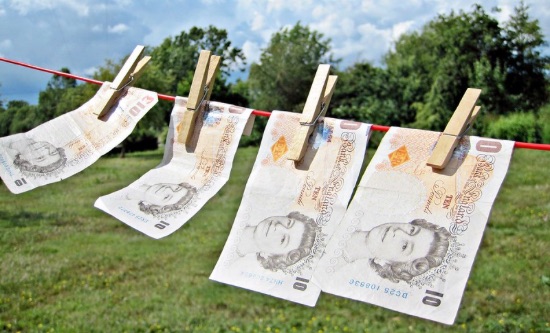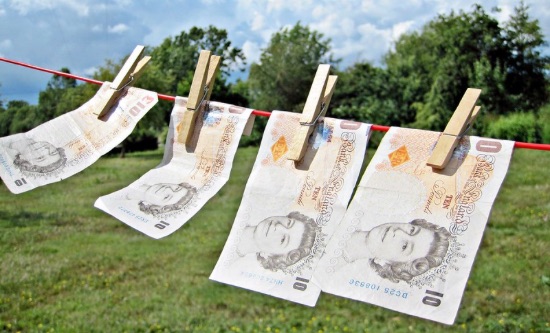
In March this year, as Russian troops prepared to enter Mariupol and talk began of chemical warfare, Boris Johnson thought this the final act of ‘a cynical and barbaric government’. He’d already promised to ‘tighten the noose around Putin’s regime’. That now meant going after Russia’s money men. He needn’t have gone far as they only live next door and own much of Westminster. ‘With their close links to Putin,’ said foreign secretary Liz Truss, the Belgravia oligarchs ‘are complicit in his aggression.’ It is supposed these men can bring pressure to bear on Moscow – perhaps even that they will prove the undoing of their president. From now and until the Ides of March, these Russians lose their legally protected place in England’s oligarchy.
‘Kleptocrats have no place in our economy,’ said Truss.
‘We will open up the Matryoshka dolls of Russian-owned companies and Russian-owned entities to find the ultimate beneficiaries within,’ said Johnson.
‘All talk and no vodka’, said several of their backbenchers. Johnson hoped he’d quieten the naysayers with a deal struck in Riyadh, replacing tainted Russian oil and gas with its progressive and reforming Saudi equivalent. The Saudis put the kibosh on that: executing 81 prisoners on the eve of his arrival and three more during his visit, refusing to increase oil production, and sending Johnson home – embarrassed and empty-handed – to defend his lame Economic Crime Bill.
The duller Tory MPs had wondered aloud why Britain’s list of sanctioned-Russians wasn’t half the length of those drawn up in Washington or Brussels – and took longer to write. By the second week of March the US and EU had sanctioned 69 persons each – Britain, 26. ‘Fight-shy and pussyfooting’, said the opposition.
Indeed. But why so? Grabbing Russian money abroad might hurt in Moscow sooner or later, but it pulls the guts out of London. Once the heart of an empire, the city on the Thames is now money-launderette to the world – and Russian custom has been booming here since the turn of the millennium.
Every era of fortune in the English capital was born of tragedy somewhere. This one began with the overthrow of the Soviet system, a suffering shared by the Russian and Ukrainian peoples: the homes, livelihoods and social protections of millions of workers, lost or wrecked by an insurgent domestic capital. What remained of the Soviet Union was dismantled in the winter of 1991. The 1990s were the years of chaos, coup, countercoup and more chaos. It was also a springtime for mobsters, sticky-fingered administrators and black-marketeers, long hard at work in Perestroika’s ‘cooperatives’. Corrupted party officials, former soldiers and security agents joined the ranks of the ‘new entrepreneurs’, equally keen to ‘learn democracy’.
In Russia, rigged auctions saw the country’s vast state resources fall into the hands of a few. Few became fewer still in the bloody turf wars that followed. A dirty dozen controlling oil, gas and aluminum held real political influence in the Boris Yeltsin era (1991-99) as the new Russian state only slowly organised itself. With the transition from Yeltsin to Putin, the state strove to assert its authority – it clashed at times with oligarchical power and came out on top. The new magnates subsequently left politics to the politicians, and their money left the country.
Those Russian riches arrived, via Swiss bank accounts, in Paris, New York, Tel Aviv – but it was London, under four hours from Moscow by private jet, that emerged as destination of choice. Led by Red Ken Livingstone – then Mayor of London – Labour flogged Britain to the men from the Wild East: low taxes or no taxes, the ‘most approachable’ financial market in the world, and a legal system they could really rely on. No state interference over here, they were told – not like back home.
And so a number of shell companies sprung up in the Caymans, or the Virgin Islands, or some other British Overseas Territory. As stock held there was sold, the tax-free income was used to buy a Kensington mansion, or a riverside penthouse in Chelsea, or the better part of Surrey. British law allowed for property bought in this way to be held anonymously. Before the 2008 financial crash, and again after it, Russian money powered London’s property boom. House prices soared. Estate agents, accountants and lawyers took their pound of flesh. The big money moves softly, but here you felt the silence: Bayswater lost its bustle; the old Notting Hill, with its Irish bars and West Indian clubs, faded away. Whole parts of West London suffered the same surreal desolation: shiny, ghostly rows of stucco on stone.
First came the money, then came its owners. In exchange for a couple of million pounds invested, Labour’s Golden Visa racket (2008) provided a shortcut to citizenship for the oligarch and his brood. Several hundred took up the offer of permanent residency, knowing the larger the investment, the quicker the process (the scheme was only wound up this year – to the dismay of many a London lawyer and property agent).
Having taken care of their savings, moved the family to Highgate, and enrolled the childer at the most expensive school in chauffeuring distance, it was time to take care of the family name. More good news for London legal firms and whichever PR agency they recommended.
As the lawyers chased the journalists, the new arrivals were free to make their well-advised financial contributions – money to this or that great institution, to the Prince’s Fund of course. And, as fully paid-up citizens, they could hand their spare change to any one of Britain’s many political parties. Needless to say, they’ve only been backing winners.
Inflated land prices, keeping rents high, propping up the housing market, and no end of legal and consultancy fees – not to mention steady custom for high-end retailers and the odd political donation. And there’s Boris Johnson and his war office – sanction-shy and pussyfooting? Little wonder, you might think.
Patrick Casey
Fight Racism! Fight Imperialism! No 287, April/May 2022




